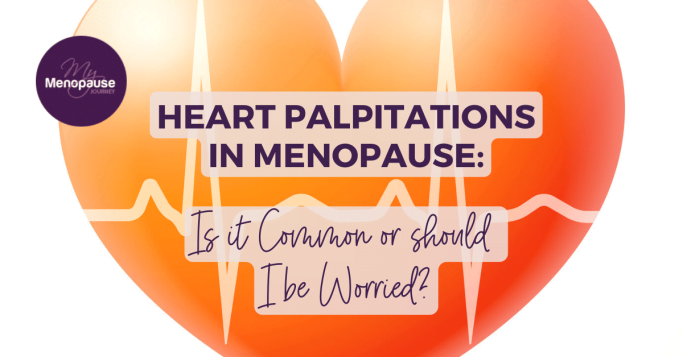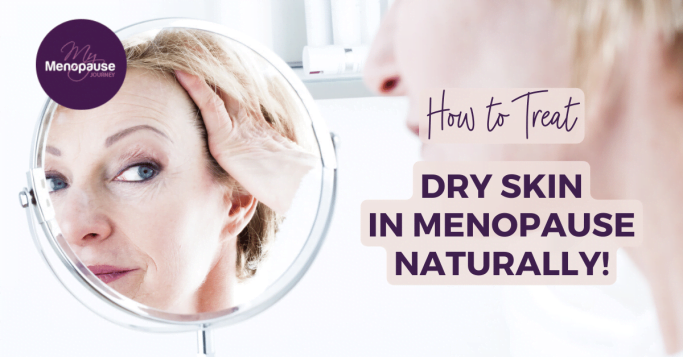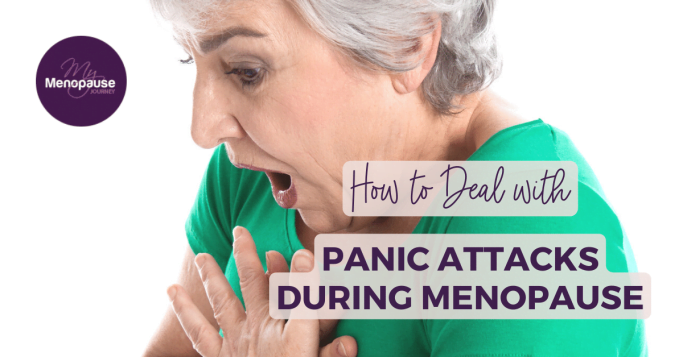What’s wrong with me?
Why do I feel so awkward in some situations?
Why do I suddenly cry for no reason?
Why do I sit here by myself and retreat to my cocoon?
These were my thoughts and feelings when I entered perimenopause. At that time, I didn’t really know what it was. I’d tell myself to “take hold of my emotions”, but I just couldn’t. My feelings were all over the place.
I acted really strange back then, and I wish I had known what I know now – it was anxiety and depression. A lot of women can relate to my experience because these symptoms are common during menopause.
Anxiety or depression happens as we enter puberty as well. Hormonal shifts prepare us to become “adults”. The menopause transition is sort of the same, but we are entering another stage of life. I like to call it “midlife puberty”.
Just like in puberty, anxiety and depression subsides as our hormones start to settle.


How to Know If You Have Anxiety and Depression!
It’s normal to feel low and sad every now and then, but having these feelings for long periods of time is another story.
In the menopause transition, anxiety and depression usually start in perimenopause [link]. Some women say these symptoms can go as far as postmenopause.
Anxiety and depression share some similar symptoms, but they’re actually different.
According to the Anxiety and Depression Association of America (ADAA), anxiety happens when we have persistent, uncontrollable and overwhelming feelings of urgency.
Symptoms of anxiety include difficulty concentrating, agitation and dizziness. Others also experience over sweating and heart palpitations.
Depression is a profound feeling of discouragement, gloom, hopelessness and disinterest in life. It usually lasts for two weeks or more. Besides emotional symptoms, changes in appetite and weight, loss of energy, fatigue and social withdrawal are also common.
Dr. Eric Berg shares his thoughts about anxiety and depression and how you can ward them off. A great video with lots of helpful information [12:49]:
Is Menopause Causing Anxiety and Depression?
Women are twice more at risk of getting anxiety and depression than men. I’ve always wondered why, until a study published in the National Institutes of Health (NIH) pointed to two things:
- Hormonal changes which happen throughout a woman’s life
- Women are more sensitive to situational changes
The study says that once women start puberty, we are more susceptible to mood problems because of our hormones. When I was in my teens, I would experience low moods or irritability before my menstruation.
Estrogen and progesterone are natural calming and relaxing hormones. They also influence our brain function and gut, the main organ that produces serotonin, the mood hormone.
However, during the menopause transition, these hormones become unstable. As a result, our body can’t relax. It also disturbs our brain chemicals and decreases mood hormones such as serotonin, dopamine and endorphins.
Besides hormonal imbalance, dealing with other symptoms such as sleep disturbances, night sweats, low libido and more, can cause anxiety and depression.
Life changes such as caring for aging parents, children leaving home, and losing a loved one, may also contribute to these two symptoms.
Women are naturally receptive to changes in situations. According to NIH’s study, we internalize emotions and feelings deeper than men, which can sometimes lead to worry and anxiety.
All these stressors can take a toll on our adrenals, the main stress regulator. As a result, we experience adrenal fatigue and stress hormones, like cortisol, go haywire. This creates many symptoms, which can add to our existing menopause discomforts.
The best way to go is to start supporting and healing your adrenals as early as now. Get tips from our adrenal fatigue article!
10 Best Natural Treatment for Anxiety and Depression during Menopause
1. Acknowledge your emotions
Accept that your emotions are real – they exist. When you embrace your feelings for what they are, you can think of ways to deal with them calmly. Most menopausal women ignore their symptoms, and this often makes it worse.
2. Know the root cause of the problem
Stress is one of the biggest causes of anxiety and depression. We all experience it in our lives. What are your stressors? It can be family situations, stress at work, old parents, adrenal fatigue, over-exercising or social media.
Have an inventory of your life and see the causes. Can you reorganize your life in some way? A bit of stress is okay, but we have to learn to recover and recharge.
3. Maintain a healthy diet
What we eat and how our brains work have a deep connection. They are dependent on each other! Eat as healthy as you can. But remember that eating nutritious food is not enough. Your gut needs to digest and absorb them properly too. If not, your body will have trouble getting the right nutrients it needs.
Go organic and GMO-free to avoid hormone-disrupting toxins. Eliminate processed, sugary and salty foods in your diet. Take it easy on caffeine and alcohol because they stimulate our nerves. Consume brain-boosting omega-3 and omega 6 fatty acids such as salmon, sardines and nuts.
Consume more cruciferous, leafy greens and fruits to get complete vitamins and minerals. Most veggies are also rich in phytoestrogens and adaptogens, which are excellent for hormone balance!
Eating a low-carb, high-fat, moderate-protein diet is the way to go. Many studies show the good effect it has on our health. I eat this way now, and I haven´t had any anxious or depressed feelings at all.
4. Exercise regularly
Exercise can improve blood flow to our hormone-producing glands. When we move or do activities, our body produces happy hormones, such as serotonin and endorphins. We also release toxins and waste products through sweating.
Do different exercises every day! Strength training and high-intensity interval training (HIIT) are great exercises to prevent menopausal weight gain. If you need a little calm, while still moving, go for Qigong, Pilates or Tai Chi!
Over training can actually put stress on the body. You should feel energized and good after exercise. If you’re exhausted and tired, you might be overdoing it.
5. Relieve stress
Meditation and yoga are excellent for relieving stress. They relax our mind and body and bring back our balance. Walk in nature, take a warm bath and find your way to recharge.
Deep breathing is also another good way to de-stress. Many of us don’t follow the proper way of breathing, and I’m guilty of it too. Learning to breathe deep towards your stomach keeps you calm, facilitates better lymph flow, and flushes out toxins.
6. Keep the gut healthy
As I mentioned above, the gut plays a significant role in brain function!
The gut is the body’s second brain. In fact, it’s very sensitive to any imbalances in other parts of our body. The gut produces serotonin, our major happy hormone, which also has relaxing properties. Besides this, nutrient absorption happens in the gut.
Keep your gut healthy by eating the right kinds of food, especially probiotics and prebiotics-rich foods. Avoid gut irritants, like gluten and dairy, because they cause inflammation!
7. Supplement
If you’re experiencing anxiety and depression during menopause, you may want to consider using supplements that support your hormones. There are plenty of supplements in the market made of herbs, natural ingredients and organic sources. Here are some of them:
- 5-hydroxytryptophan (5-HTP) – synthesized from tryptophan which increases serotonin levels
- Gamma-aminobutyric acid (GABA) – an amino acid that helps in hormone production. It is also a natural anxiety reliever
- Magnesium – this mineral helps in calming your nervous system, relaxes your muscles and helps in hormone regulation
- Zinc – this mineral improves our brain and body’s ability to cope with stress. In fact, zinc is known as a natural anti-depressant. It also helps our body to produce more hormones. Zinc deficiency is common because of our “modern diet”. This is why experts suggest supplementing with zinc to ease anxiety and depression.
- B-vitamins – B6 and B12 are especially helpful in managing stress and stabilizing your mood
- Amino acids – they are the building blocks of our hormones! Lysine and arginine are two major amino acids important during menopause because they improve our brain-to-body stress response.
Aside from helping you ease anxiety and depression, these supplements may also relieve menopause symptoms like crashing fatigue, hot flashes, vaginal dryness and low libido.
8. Use herbs!
One of the well-known herbal cures for anxiety and depression is St. John’s Wort. This herb is rich in adaptogens which can regulate cortisol, the stress hormone! Besides St. John’s Wort, Chasteberry, Rhodiola, Maca Root, Licorice, Ginseng and Ginkgo Biloba are also potent stress reducers! They increase the production of happy hormones which makes us feel better.
In Ayurveda, or traditional Indian Medicine, natural treatments are used to address problems with anxiety and depression.
9. Try natural progesterone cream
Besides its reproductive functions, progesterone is our body’s natural antidepressant. Together with estrogen, it helps create more serotonin, a hormone that relieves stress and anxiety!
Natural progesterone cream comes from plants such as yam and soybeans. These two plants are rich in diosgenin, a powerful plant-based estrogen.
When buying natural progesterone cream, make sure to choose the ones with the United States Pharmacopoeia (USP) label. The USP label means that a progesterone cream passed quality standards. Dr. Josh Axe says it’s good to rotate sites of application and not use more than 20 to 30 mg per day.
10. Seek professional help
When I went to the doctor for help, he advised me to take antidepressants. I know it’s common for women to resort to pills when they experience anxiety and depression feelings. There’s nothing wrong with that. But it would also be nice if we consider taking an alternative and more natural treatment. After all, we know what our body needs best!
Dr. Josh Axe has a good video about depression in general. He speaks about what we can do to feel better [6:59]!
Misconceptions about anxiety and depression prevent some women from seeking help. Emotional symptoms don’t make you weak; it’s not your fault! Your discomforts didn’t happen overnight. Hormonal imbalances, stress and major life changes have something to do with why you feel the way you do. Anxiety and depression are real, and there are plenty of solutions to eliminate these symptoms!
Mia Lundin, a registered nurse and women’s health expert, believes you can relieve anxiety and depression by having well-balanced hormones and brain chemistry. Her book “Female Brain Gone Insane” did a nice job of explaining how the imbalances of these two can affect our emotional well-being! It is written a few years ago but I found it very helpful. Grab a copy of her book here!
Got other menopause symptoms?
Understand them better with our symptoms page!
Just started perimenopause?
Get your menopause essentials from our homepage!
Do you have a story to tell about anxiety and depression or tips you want to share? You’re always welcome in our comment box below! Someone in your life may have a bit of a tough time right now. Brighten up their day by sharing this on your wall!
References:
https://www.sciencedaily.com/releases/2010/04/100411143348.htm
https://jamanetwork.com/journals/jama/article-abstract/2618635
https://www.ncbi.nlm.nih.gov/pmc/articles/PMC4890708/






Nice :/
It really good posts n useful tips n advices thnk u sooooo much
Nice
Really so good to no more n more coz ladies go through ol dis so much in late ages in there life’s
Plz tel wat vitamins we shuld take in this time of menopouse as we start to miss our monthly n ol of a sudden it stops wat vitamans n probiotics r good for it
Hello Yashmin,
We can’t give advice on what options to take or not. Always consult a physician or a qualified professional when it comes to health matters.
Our articles describe different herbs, vitamins and supplements, how they can affect you and where you can find them. All these and more details are provided for informative purposes.
Later this week, we will publish a new article about different Menopause Supplements. If you decide to test supplements by yourself, always try one product at a time and find out how you feel or respond to it.
What we could advise you for now is to do some simple tests, which we have also written about. https://mymenopausejourney.com/test-to-take/.
Enjoy Menopause 🙂
Gita